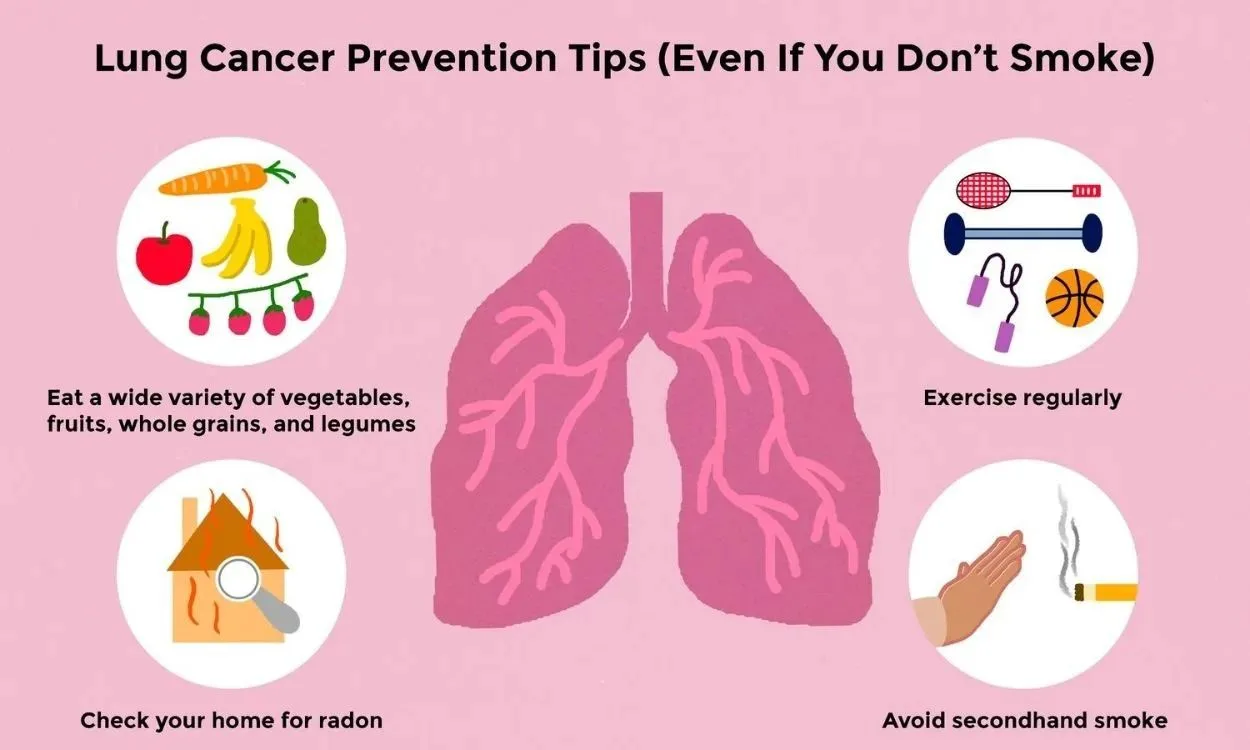Can lung cancer be prevented?
Lung cancer is one of the most common and deadliest forms of cancer worldwide. It is characterized by the uncontrolled growth of abnormal cells in the lungs, leading to the formation of tumors. While certain risk factors, such as genetics and exposure to certain chemicals or substances, cannot be controlled, there are steps that can be taken to reduce the risk of developing lung cancer. In this article, we will explore various preventive measures that can be adopted to decrease the chances of acquiring this disease.
Understanding the Risk Factors
Before delving into prevention strategies, it is important to understand the risk factors associated with lung cancer. These factors can be categorized into two main types:
- Modifiable Risk Factors: These are factors that can be influenced or changed by individuals, and taking action to minimize or eliminate them can help prevent lung cancer. Some examples of modifiable risk factors for lung cancer include:
- Smoking: Cigarette smoking is the leading cause of lung cancer. It is estimated that approximately 80-90% of lung cancer cases are directly related to smoking. Quitting smoking or never starting in the first place is the most effective way to reduce the risk of developing lung cancer.
- Secondhand Smoke: Exposure to secondhand smoke can also increase the risk of lung cancer. Avoiding environments where smoking is prevalent and encouraging others to quit smoking can help mitigate this risk.
- Radon Exposure: Radon is a radioactive gas that is released from soil and rocks. Prolonged exposure to high levels of radon can increase the risk of lung cancer. It is important to test homes for radon and take appropriate steps to reduce its concentration if necessary.
- Occupational Hazards: Occupational exposure to certain chemicals and substances, such as asbestos, arsenic, diesel exhaust, and certain metals, can increase the risk of lung cancer. Proper protective measures should be taken in workplaces to reduce exposure.
- Air Pollution: Long-term exposure to outdoor air pollution can contribute to the development of lung cancer. Minimizing exposure to polluted areas and using air purifiers in homes can help reduce this risk.
- Non-Modifiable Risk Factors: These are factors that cannot be changed or controlled, as they are inherent to an individual’s genetics or circumstances. While these factors cannot be prevented, understanding them can help individuals make informed decisions about their health. Some non-modifiable risk factors for lung cancer include:
- Family History: Individuals with a family history of lung cancer may have an increased risk of developing the disease. Genetic counseling and early screening for high-risk individuals can be beneficial in such cases.
- Age and Gender: The risk of lung cancer increases with age, and men are more likely to develop the disease compared to women.
- Prior History: Individuals who have previously had lung cancer are at a higher risk of developing it again.
- Certain Lung Diseases: Pre-existing lung diseases, such as chronic obstructive pulmonary disease (COPD) and tuberculosis, can elevate the risk of developing lung cancer. Proper management and treatment of these conditions are important.
Prevention Strategies
Now that we have an understanding of the risk factors, let’s explore some effective strategies for preventing lung cancer:
- Quit Smoking: If you are a smoker, quitting smoking is the most crucial step you can take to prevent lung cancer. Seek support from healthcare professionals, join cessation programs, and consider nicotine replacement therapies to help you quit successfully.
- Avoid Secondhand Smoke: Avoiding environments where smoking is prevalent and ensuring that your home and car are smoke-free can significantly reduce your exposure to secondhand smoke.
- Test for Radon: Test your home for radon levels, especially if you live in an area with a high radon concentration. If elevated levels are detected, take steps to mitigate radon by sealing cracks, improving ventilation, or installing a radon reduction system.
- Protective Measures at Work: If you work in an occupation that involves exposure to hazardous substances or chemicals, make sure to follow proper safety protocols and use protective equipment to minimize exposure.
- Reduce Air Pollution Exposure: Minimize your exposure to outdoor air pollution by avoiding heavily congested areas and practicing good indoor air quality habits, such as using air purifiers and keeping windows closed in polluted environments.
- Healthy Lifestyle Choices: Adopting a healthy lifestyle can also help reduce the risk of lung cancer. Some key lifestyle choices include:
- Diet: Consume a balanced diet rich in fruits, vegetables, whole grains, and lean proteins. Limit the intake of processed foods, red meats, and sugary beverages.
- Physical Activity: Engage in regular exercise to maintain a healthy weight and boost your overall well-being.
- Limit Alcohol Consumption: Excessive alcohol consumption has been linked to an increased risk of lung cancer. Limit your intake or avoid alcohol altogether.
- Stay Hydrated: Drink an adequate amount of water throughout the day to promote overall health and help maintain proper lung function.
- Medical Check-ups: Regular check-ups with a healthcare professional can help detect any potential lung-related issues early on and allow for timely intervention if necessary.
While these preventive measures can significantly reduce the risk of developing lung cancer, it is important to remember that they do not guarantee complete prevention. However, by adopting a healthy lifestyle, eliminating exposure to harmful substances, and making informed decisions about your health, you can significantly lower your chances of developing this disease.
Fitpaa – Your Partner in Health and Fitness
If you are looking for a comprehensive health and fitness solution to support your journey towards overall well-being, Fitpaa is there for you. Fitpaa is an end-to-end AI-driven metabolism monitoring and management technology that aims to help individuals achieve their health and fitness goals. With a personalized approach and a team of experts including fitness coaches, nutritionists, and doctors, Fitpaa provides a holistic plan tailored to your unique needs.
Fitpaa’s Metabolism Assessment helps identify the root cause of your health condition by assessing your current metabolism. Based on the assessment, a personalized Fitpaa Capsule is prepared, combining medical therapy, exercise therapy, nutrition therapy, and cognitive behavioral therapy. Fitpaa’s Realtime Guidance technology keeps you motivated and on track, while the Fitpaa mobile app provides all the necessary tools to follow your Fitpaa Capsule with ease.
Your health and well-being are Fitpaa’s mission. Experience the joy of getting fit and excel in life by downloading the Fitpaa app today. With guaranteed results and a dedicated team of experts, Fitpaa is here to help you achieve your health and fitness goals. Remember, nothing is impossible when you have the right support and guidance.









